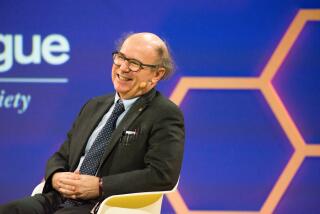A Meeting Place for Science and Religion : The ascendance of cosmology is restoring a long-interrupted dialogue
Religion and science are obviously not identical. But the growing prominence of cosmology, that branch of science that attempts to explain the order of the universe as a whole, has brought the two of late into a dialogue interrupted for centuries. The announcement last Tuesday that Paul Davies, an Australian mathematician and physicist, has won the annual, $1-million Templeton Prize for Progress in Religion, may stand as a minor milestone in that reconciliation.
The estrangement of science and religion may be dated roughly to 1633 when Galileo was hauled before the Inquisition for his heretical views about astronomy. Galileo recanted, but the ensuing estrangement of religion and science hurt religion most. What disappeared by degrees in the West was the conviction that religion even as a code of conduct could ever be rooted in nature, reality, the way things are. As that conviction eroded, what replaced it was the now familiar view that morality cannot really be argued: You have your morality, I have mine, neither of us can persuade the other by reference to any natural fact.
Davies has not re-established the broken link between ultimate reality and personal conduct, but scientists who, like him, talk scientifically about the whole cannot isolate themselves from questions of morality as many earlier scientists did. Morality, for this kind of science, is a part of the subject under investigation. And as they talk about this subject, these contemporary scientists sometimes find themselves in conversation with theologians whose intellectual sophistication matches their own.
What this conversation has to do with either religion or science as the average man or woman knows it is far from immediately apparent. But to put it very mildly, there is historical precedent for what is happening. The conversation between science and religion is not beginning in our day, it is only resuming.






